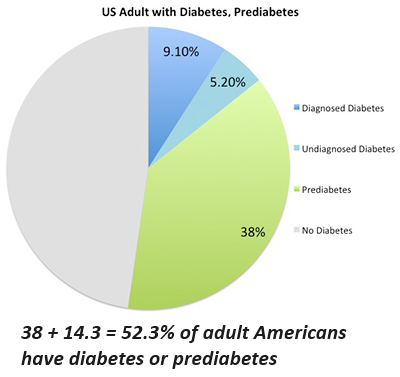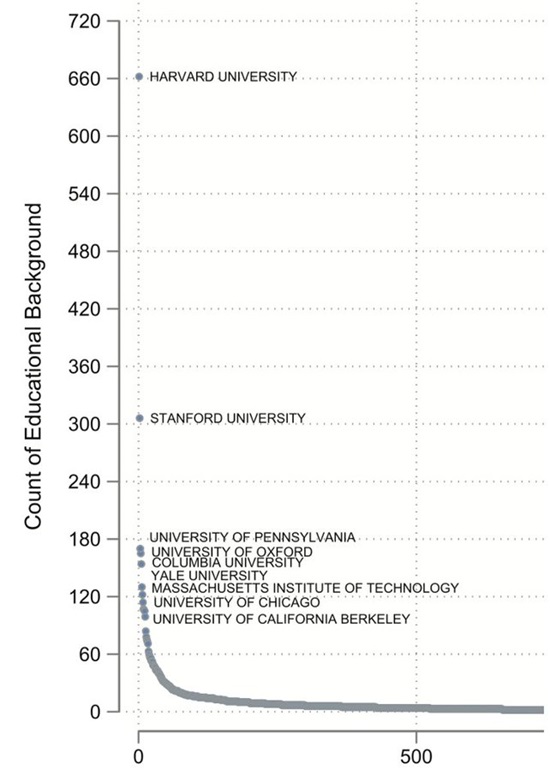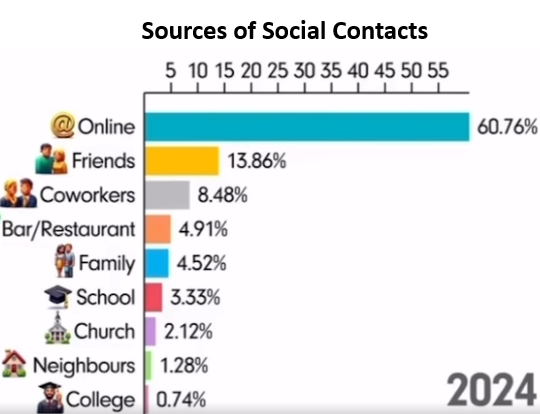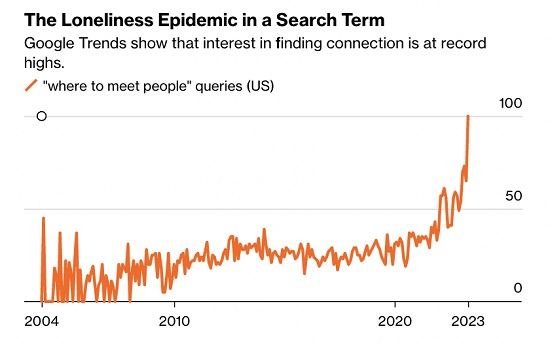Addiction, illness and derangement are all immensely profitable, along with monopoly, cartels and collapsing quality.
The economy has failed the American people, but it’s taboo to say why because that would undermine the entire power structure that so richly benefits the few at the expense of the many. The few have an extremely compelling motivation to obscure the “why” and to enforce the taboo on saying it aloud.
The economy has failed the American people because it’s a two-tiered power structure that’s essentially neofeudal, meaning it’s an updated version of traditional feudal social orders. To understand this, we must start by understanding traditional feudalism.
In feudal societies, life is pretty good for the nobility in the castle on the hill. For the powerless peasants working the fields below to fund the nobility, life is less good, and so the peasantry is open to changing this asymmetric power structure to a fairer balance.
To maintain its grip on power, the nobility must promote a social zeitgeist in which the peasantry’s powerlessness is the natural order of things and therefore resisting this structure is not only a sin, it’s futile.
One key feature of feudal social orders is the impermeability of the line between nobility and peasantry, what we call social mobility. Nobility and serfdom were established at birth, never to change. Serfs were bound to the land of their birth and could not leave; their servitude was for life.
This was a regression from the Roman Empire, which allowed ownership of land by free citizens, and relatively free movement of citizens throughout the vast empire.
Wedged between these hereditary classes were the merchants and craft workers whose services were essential to the nobility’s maintenance of power. As Fernand Braudel documented in his massive three-volume series Civilization and Capitalism, 15th-18th Century (Vol. 1: The Structure of Everyday Life,
Vol. 2: The Wheels of Commerce,
Vol. 3: The Perspective of the World), the story of capitalism is the steady expansion of commerce and production eventually generated a class with sufficient power to unseat the feudal power structure and replace it with various flavors of capitalism.
Another key feature of feudalism is the union of state and ownership of capital: there is only one nobility. The nobility owned the productive capital–mostly land, but also toll roads and other assets–and they were also the government: each fiefdom ruled its peasantry and controlled whatever judiciary was available.
The Catholic Church provided a separate power structure that interacted with the secular feudal structure in complex ways, as it owned vast tracts of land and was powerful enough to impose some counterbalancing measures on the nobility–for example, imposing numerous religious holidays for the peasantry. The church held religious authority and wealth via its monasteries and papal hierarchy, and the remarkably complex history of the Holy Roman Empire illustrates the interweaving of these church-economic-political structures.
The church also provided cover for feudalism, by promising the peasantry just rewards in the afterlife for their faith and acceptance of the status quo in this life.
The key to understanding the current neofeudal structure of our economy is to recognize the taboos against describing this structure publicly. The present-day nobility–as in classical feudalism, one class that holds both economic and state power–exerts tremendous sway via its control of media and technology, i.e. the tools of propaganda / influence.
The present-day nobility glorify a staged play in which free-market entrepreneurs battle oppressive government. The purpose is to mask the reality that our nobility is one class: the controls of state and capital are in the same hands. Who did Hank Paulson–former CEO of Goldman Sachs, then Secretary of the Treasury — call in the 2008 financial meltdown? Warren Buffett. And so on.
These tools are deployed to obscure the neofeudal realities with euphoric (and often delusional) claims of Technology-Driven Progress— everything’s getting better every day, in every way, we’re all richer in every way, don’t you see all the wonders dazzling us daily?
This is simply not true. As I documented in The Big Shining Lie: We’re Better Off Now–No, We’re Poorer, Much Poorer, the purchasing power of wages has declined for decades, forcing wage earners to borrow money or speculate in asset bubbles to fill the gap opened by the erosion in the value of labor.
The balance between labor and capital has shifted to favor capital over the past 50 years. The owners of capital have benefited mightily, reaping vast gains in unearned income and capital gains, while those “owning” hours of work have seen the purchasing power of an hour’s wage collapse, a collapse masked by the easily gamed charade of “inflation.”
As I explained in
All Three Pillars Holding Up the Economy Have Cracked, the three mechanisms used to fill this gap–government subsidies, cheap credit and asset bubbles–are all self-liquidating systems due to their inner dynamics. Simply put, debt eventually consumes all the seed corn, and all asset bubbles pop.
As for Progress, the reality is the American people have experienced the opposite of Progress, what I term Anti-Progress across the entire spectrum of everyday life. Our life expectancy is plummeting, and not just from Covid. The rates of cancer in young Americans is skyrocketing, 53% of the adult populace is diabetic or pre-diabetic, with horrendous consequences, and the solution presented by the nobility isn’t the source of this catastrophic collapse of public health–manufactured junk food and unhealthy lifestyles shaped by Addiction Capitalism–the more we addict you, the more you buy–but by pushing the government to pay tens of billions of dollars for weight-loss medications with numerous (generally under-reported) side effects.
In the upside-down world of Addiction Capitalism, every addictive device and product is glorified for its addictive nature. The little addiction stimulation device that we all carry and obsessively check 300 times a day is a wonderous “tool” for communicating–yeah, communicating derangement and addiction.
That our lives are consumed by shadow work imposed on us by corporations and the state is ignored in the frenzy of techno-hype. The fact that AI is reducing the quality of what little customer service is available–just another manifestation of the controlled demolition of quality and durability that Corporate America relies on to boost profits–never mind, AI is changing your life by, well, um, enabling the rapid expansion of malicious emails, SMS, worms, spam, etc.
The implicit message is that Progress is measured by two things–rising corporate profits and soaring stock valuations. AI is great because the companies are worth hundreds of billions of dollars. Sugary, fat-soaked snacks are great because “you can’t just have one” and they’re immensely profitable.
As for social mobility, it’s also over-hyped to mask the reality. With the right combination of talent, drive, family assets and luck, it’s possible to ascend from powerless peasant to well-to-do merchant or professional supporting the status quo with one’s labor and taxes, and a handful of super-glorified go-getters reach the nobility, but these are Cinderella stories that promote the illusion of a porous border between classes.
Meanwhile, back in the real world, life is becoming more precarious, stressful, demanding and deranging even as we’re pounded with hype glorifying profitable Progress that isn’t actually progress. The inevitable result of this disconnect between the ceaseless hype of Technology-Driven Progress and our lived experience, and the widening gap between the value of labor and the value of capital, is the fabric of society starts unraveling, something that is obvious but also taboo to describe accurately, as a self-reinforcing feedback where each thread that unravels takes two adjoining threads with it.
Anyone breaking the taboos against describing the neofeudal nature of our economy, Anti-Progress, Addiction Capitalism and the profitable decline of quality and durability is instantly slammed as a secular sinner in the religion of Technological Progress. How dare you question the endless bounty of technology, how dare you declare our “god,” technology, is a tool of control and addiction, a chimera of prosperity projected on billions of screens.
The indignation of the promoters is in direct proportion to their fear that we’ll see through the artifice and awaken to neofeudalism’s inevitable decay and collapse. Addiction, illness and derangement are all immensely profitable, along with monopoly, cartels and collapsing quality.
For goodness sakes, don’t abandon junk food and fast food for home-cooked meals made with real food–demand the government give everyone hundreds of billions of dollars of weight-loss meds with horrific side effects:

We got your social mobility right here. The vast majority of the top-tier elites in both public and private sectors (remember, there’s only one nobility) attended two universities, not for the education but for the opportunities offered by networking:

Nothing says “progress” quite like this chart of social-media dominance….

…and this chart of loneliness. Gosh, could these be related?

The nobility obfuscates its nature with a profusion of sub-classes: dukes, princes, earls and so on in the old days, as if anything matters but the stark division between the nobility and its well-paid class of enablers, and the powerless peasantry watching the pageantry with an unsettling mixture of admiration and alarm.
Tell me what’s taboo and I’ll tell you the truths that threaten the status quo. As in Kafka’s novel The Castle, the nobility’s power structure is obscured, and the castle is bustling with activity–but very little productive results of this 24/7 activity ever waft down to the impoverished residents of the village.
New podcast:
Seeking a Culture of Honor and Integrity with Emerson Fersch and Amy LeNoble (59 min)
My recent books:
Disclosure: As an Amazon Associate I earn from qualifying purchases originated via links to Amazon products on this site.
The Mythology of Progress, Anti-Progress and a Mythology for the 21st Century
print $18,
(Kindle $8.95,
Hardcover $24 (215 pages, 2024)
Read the Introduction and first chapter for free (PDF)
Self-Reliance in the 21st Century print $18,
(Kindle $8.95,
audiobook $13.08 (96 pages, 2022)
Read the first chapter for free (PDF)
The Asian Heroine Who Seduced Me
(Novel) print $10.95,
Kindle $6.95
Read an excerpt for free (PDF)
When You Can’t Go On: Burnout, Reckoning and Renewal
$18 print, $8.95 Kindle ebook;
audiobook
Read the first section for free (PDF)
Global Crisis, National Renewal: A (Revolutionary) Grand Strategy for the United States
(Kindle $9.95, print $24, audiobook)
Read Chapter One for free (PDF).
A Hacker’s Teleology: Sharing the Wealth of Our Shrinking Planet
(Kindle $8.95, print $20,
audiobook $17.46)
Read the first section for free (PDF).
Will You Be Richer or Poorer?: Profit, Power, and AI in a Traumatized World
(Kindle $5, print $10, audiobook)
Read the first section for free (PDF).
The Adventures of the Consulting Philosopher: The Disappearance of Drake (Novel)
$4.95 Kindle, $10.95 print);
read the first chapters
for free (PDF)
Money and Work Unchained $6.95 Kindle, $15 print)
Read the first section for free
Become
a $3/month patron of my work via patreon.com.
Subscribe to my Substack for free
NOTE: Contributions/subscriptions are acknowledged in the order received. Your name and email
remain confidential and will not be given to any other individual, company or agency.
| Thank you, David J.R. ($70), for your magnificently generous subscription to this site — I am greatly honored by your support and readership. |
Thank you, Brass Mule ($7/month), for your superbly generous subscription to this site — I am greatly honored by your support and readership. |
| Thank you, Russell B. ($70), for your marvelously generous subscription to this site — I am greatly honored by your support and readership. |
Thank you, Medical Auteur ($70), for your splendidly generous subscription to this site — I am greatly honored by your support and readership. |
